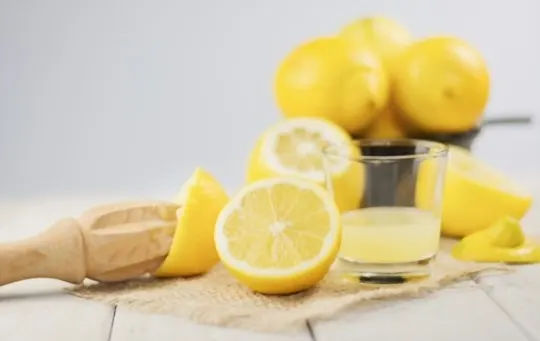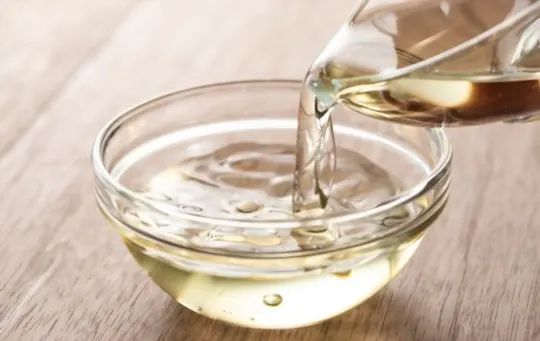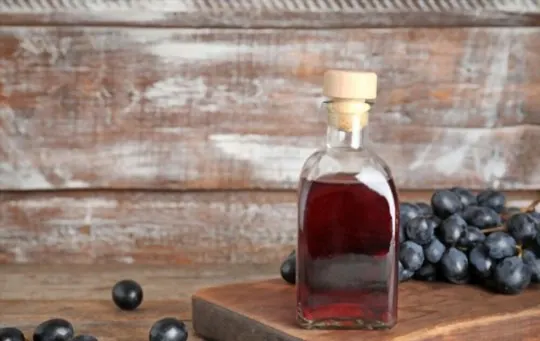Running low on white distilled vinegar can throw a wrench in your cooking plans.
No need to cancel your gourmet ambitions.
We’ve got the perfect list of swaps that’ll keep your dishes on track.
Apple cider vinegar steps up as a fantastic alternative, bringing a fruity twist to your meals.
Lemon or lime juice is your go-to for that sharp, tangy zing.
And who can forget about rice vinegar? It’s milder, sure, but it plays well in Asian-inspired dishes.
We’re here to keep your kitchen experiments alive and kicking.
These substitutes are more than just stand-ins; they could elevate your cooking.
Give your favorite recipes a new lease of life with these clever swaps.
The 5 Best Substitutes for White Distilled Vinegar
If you’re looking for a vinegar alternative, there are plenty of options that can provide the same tangy taste and acidity as white distilled vinegar.
Here is a list of five substitutes for white distilled vinegar that you may want to consider:
1 – Apple Cider Vinegar

Apple cider vinegar adds a unique tartness to dishes, and it can easily be substituted for white distilled vinegar in many recipes.
It provides the same level of acidity but with a much different taste.
The tangy, sour flavor of apple cider vinegar is unmistakable and difficult to mimic with other ingredients, which makes it an excellent addition to salads, sauces, and marinades.
To substitute apple cider vinegar for white distilled vinegar, simply use an equal amount of the product and proceed with the recipe instructions as normal.
Apple cider vinegar is sure to provide a delicious twist to any dish, so try experimenting with it for a flavorful kick.
2 – Lemon Juice

Lemon juice is an incredibly versatile ingredient that adds a tart and tangy taste to dishes.
Aside from being a component of many recipes, it has also been known to have helpful health benefits.
Lemons are known for their high amount of vitamin C and antioxidants, which give them their popularity as a tool for healing and cleansing.
Its intense citrus flavor gives dishes and drinks a unique zing that not many other ingredients can achieve.
It’s also highly acidic, making it a great substitute for white distilled vinegar.
Use the same quantity of lemon juice as you would vinegar in any given recipe to get the same level of acidity and taste, especially when marinating vegetables or making dressings and sauces.
3 – Rice Vinegar

Rice Vinegar is a popular condiment used around the world for its clean, mild taste.
It has a subtle sweetness and mellow tanginess that adds complexity to sauces, dressings, and marinades.
For recipes calling for white distilled vinegar, you can easily substitute an equal amount of rice vinegar in its place.
The natural flavor works especially well in Asian cuisine, as well as salads and slaw.
With its versatility and unique flavor, it’s no wonder that rice vinegar has become such a pantry staple around the globe.
4 – White Wine Vinegar

White wine vinegar is a delicate ingredient that adds a subtle flavor to any dish.
It has a mild and slightly sweet taste, which makes it the perfect condiment to enhance the flavor of salads and marinades.
Those looking for a substitute for white distilled vinegar may find that white wine vinegar does not possess the same acidity.
However, it provides just enough tartness for those who are looking for something less intense.
Try reducing the amount of white wine vinegar in your next recipe if you’re looking for an alternative to white distilled vinegar.
Additionally, its added flavor may be beneficial if you’re looking to add something special to your dishes.
5 – Red Wine Vinegar

Red wine vinegar is a smooth and often fruity vinegar made from the fermentation of either red or white wines.
Its flavor pairs well with many different types of ingredients and is perfect for salad dressings and marinades.
It has a notably richer taste than white distilled vinegar, so if you want to substitute it in recipes that call for the latter, then it’s best to start off by reducing the amount – typically, one can only use around three-quarters of the amount listed in a recipe and adjust as needed based on personal taste preference.
While it won’t give you the same sharpness as regular vinegar, it adds an interesting depth to dishes, making them more interesting and complex.

Leave a comment